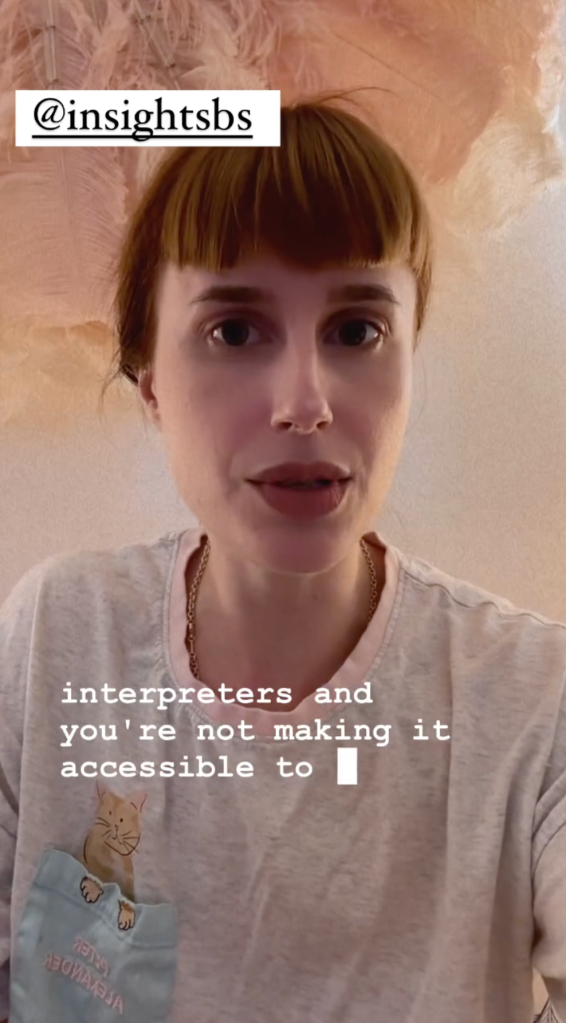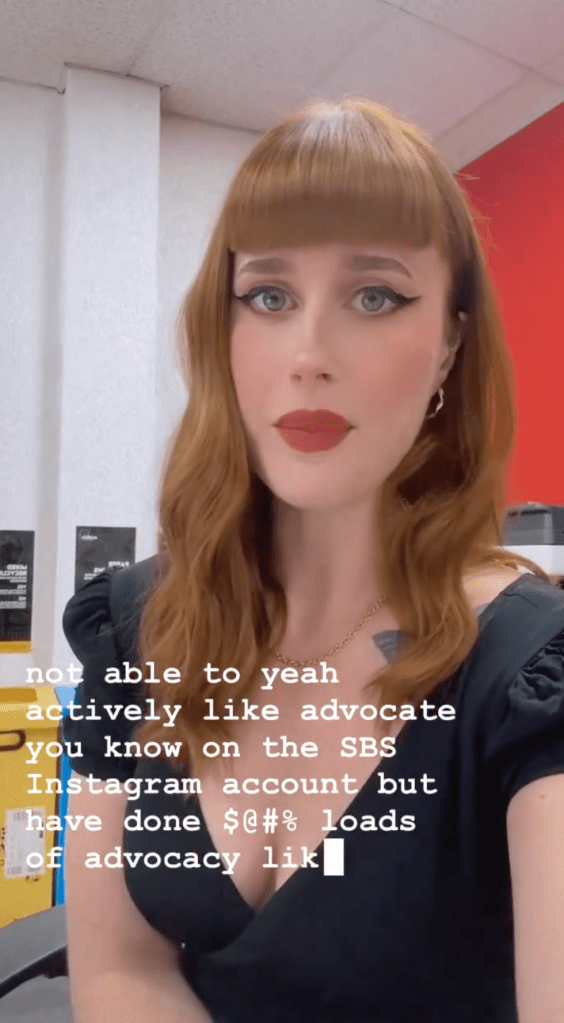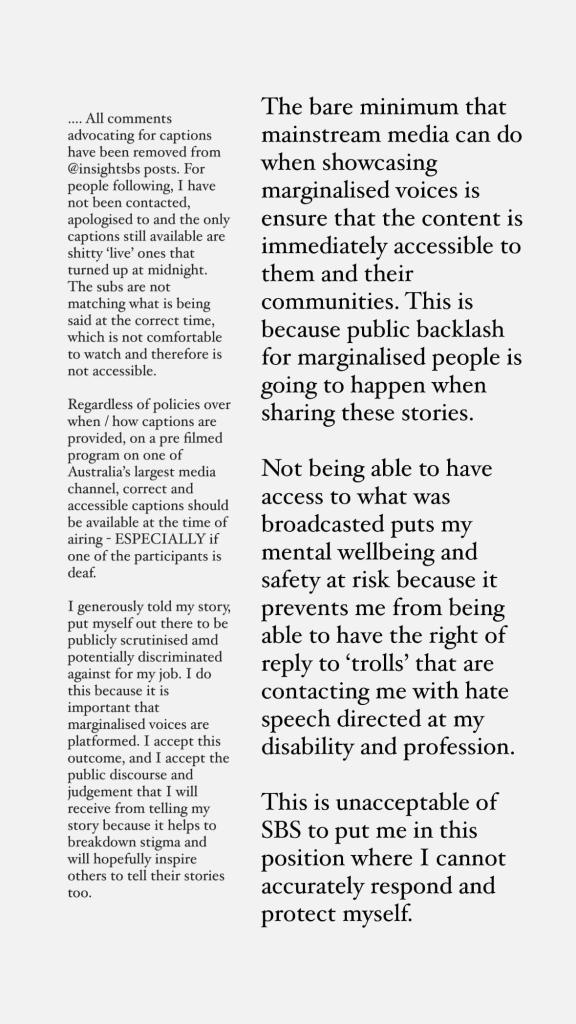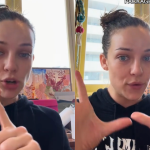
Sydney-based sex worker Katia Schwartz has shared her disappointment in the SBS Network after her appearance on the panel discussion show Insight was not accessible to Deaf viewers like herself. She quickly took to Instagram to call out the show for making it so that she couldn’t watch the episode she appeared on.
On Tuesday night SBS’ flagship program Insight aired an episode that featured a nuanced discussion on the topic of relationships built on convenience.
On it, hosted by Kumi Taguchi spoke to people with different types of “convenient relationships” such as a woman who found her sperm doctor online, two single mums who co-parent in a combined household, and Deaf erotic dancer Katia Schwartz.
The morning of the episode’s release, Katia gave the show a plug on her Instagram Story and encouraged her followers to watch it. But once the episode aired, Katia was left feeling “angry, upset,” and “disempowered as a Deaf person.”
She told her 6.8K followers how one of her specific conditions for appearing on the show was that it was accessible for her to watch and include captions.

The lack of captions means she said she felt she was “excluded” from being able to know how she was represented.
Katia tries to watch her episode
Katia explained to PEDESTRIAN.TV that she was initially “quite shocked” when she tried watching the episode. So much so, that she first attempted on her AppleTV, and then on her laptop to confirm she couldn’t find the correct captioning she requested.
“When the episode transitioned to the On Demand platform, I attempted to watch it again and there were still no captions,” Katia said.
Then in a turn for the worse, Katia recounted how she began to receive negative feedback online about her appearance on the show — before she was even able to view it.

“Trolls had already found me online and began sending me derogatory messages about having a disability, not being the ‘type’ of deaf person they expected, general nasty comments about being a sex worker and horrible, misinformed comments about my capacity and ability as a deaf person to find other employment,” she recounted.
Though Katia was prepared for a degree of negative backlash due to being a member of two heavily stigmatised groups, she found that her right to a reply was taken from her given she could not view the episode as it aired.
“The result of not having access to a portrayal of myself at the same time as able-bodied people has deep implications for my self-esteem and autonomy as a deaf person,” she said.
“I accept being edited by the media and exposing myself to public criticism – but I would never have consented to participate in the show if I knew that there would be such a huge disregard for my access and safety.”
SBS Insight’s response
Despite her attempts to get the attention of the SBS Insight team, Katia shared that she has not yet received any contact from the program, let alone the apology she wants.
However, a spokesperson from the show shared a statement to PEDESTRIAN.TV, which gave a different account of events.
“We can confirm after numerous checks that last night’s episode of Insight did include closed captions on SBS ONE (Channel 3 and 30) live as the program went to air,” said the SBS spokesperson.
They then explained the captioning process that the network uses, stating that there is a delay between the live captions, and the “tidied up” ones.

“When Insight first airs, the program is live captioned. We then have those captions ‘tidied-up’ as quickly as possible for our On Demand viewers,” stated the spokesperson.
“While Insight is recorded before it goes to air, the finished product is only delivered on the day of broadcast to allow for potential changes. This doesn’t allow SBS to close caption Insight for SBS On Demand any earlier.”
Katia pointed out that this explanation dismisses her initial request that the episode be captioned earlier so that she could view it at the same time as everyone else.
How can the media be more accessible to Deaf people?
Though the SBS confirmed with PEDESTRIAN.TV that it followed all the legislative requirements of the Broadcasting Services Act 1992, Katia says that “simply following a guideline is not enough”.
Part of the reason why Katia says people like her are left disadvantaged is that even though media organisations are following all the necessary legislation around making accessible broadcasting, many marginalised and disabled people slip through the gaps.
And though there are the obvious bare minimums such as having correctly timed accurate captions for Deaf viewers, or providing Auslan interpreters, more can be done.
“All media should be in touch with Deaf Connect, and other organisations that can educate team members on disability awareness and accessibility should be mandatory,” she urged.
Otherwise, people like Katia are left completely in the dark, feeling disregarded, disrespected, and disempowered.
“No matter how these organisations try to palm off their ethical responsibility to ensure access to disabled people with the ‘lack of funding/time/resources’ trope – it’s very transparent that they simply don’t care about disabled people,” she stated.
Deaf Connect is Australia’s largest service provider to people who are Deaf or hard-of-hearing.
[Image: Ryan Pierse/Getty Images/Supplied]



